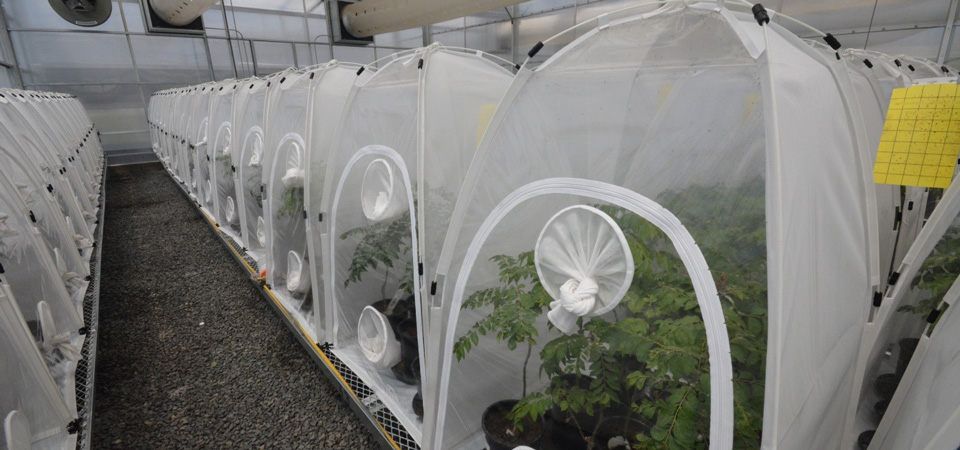Research: Fighting the Asian Citrus Psyllid and Huanglongbing
Save Our Citrus!
An invasive insect called the Asian Citrus Psyllid (ACP) has infested California. The psyllid can transmit a deadly bacteria called Huanglongbing (HLB). This disease is fatal to citrus trees, and there is NO cure. Diseased trees produce bitter, hard, and lopsided fruit, and eventually die.
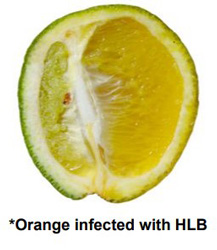
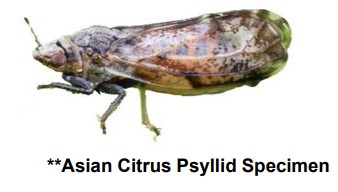
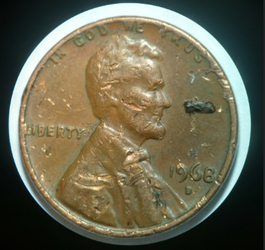
How Can You Help?
- Inspect your citrus trees regularly for signs of Asian Citrus Psyllid populations.
- Do NOT move citrus or plant material in or out of your county or across state borders.
- Cooperate with agriculture crews placing traps, inspecting trees, and treating for psyllids.
- Immature ACP
do not have wings and will feed on the new flush of the citrus trees. Immature ACP can be identified by their white excrement (see below). - Control ants on your citrus. Ants protect the psyllids and will interfere with beneficial insects.
If you suspect that your tree has Asian Citrus Psyllid or is infected with HLB, you should act immediately. Call the California Department of Food and Agriculture (CDFA) at 1-800--491-1899 or contact your county agricultural commissioner's office. You also can visit http://CaliforniaCitrusThreat.org for more information.
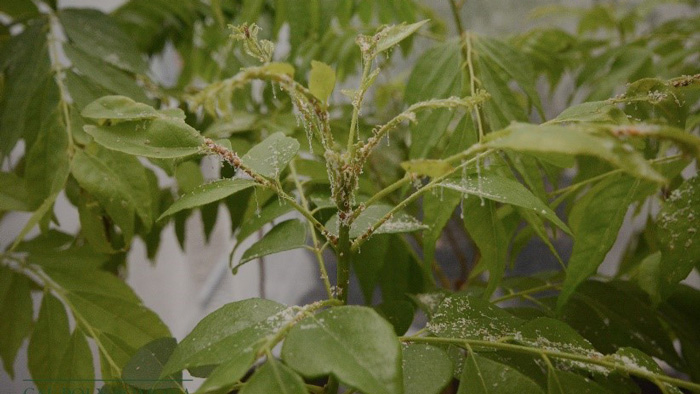
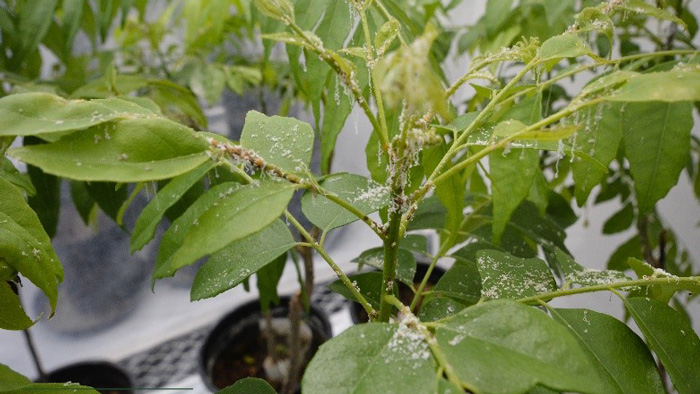
Other Important Facts
The psyllid is invasive and not normally found in our ecosystem. This pest most likely originated from India or Asia.
Since the psyllid was detected in 2005, Florida has lost more than $7 billion in economic activity related to citrus and more than 6,000 jobs. This is almost entirely the result of HLB's spread.
California has a $2 billion citrus industry that needs protection. Citrus is a staple of California's economy, culture, and history.
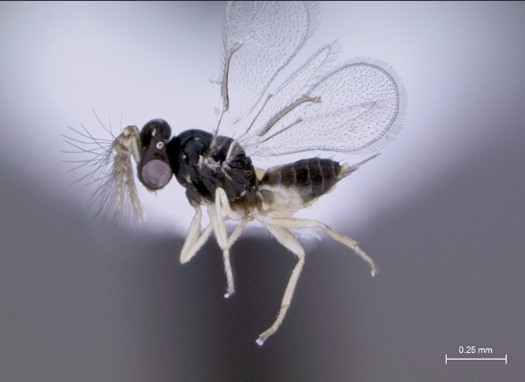
Our current management attempts include the use of a parasitic wasp called Tamarixia
If you have other citrus-related questions, check out the University of California's Integrated Pets Management website: http://ipm.ucanr.edu/PMG/selectnewpest.citrus.html.
